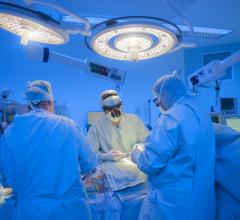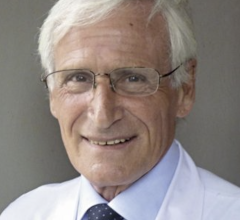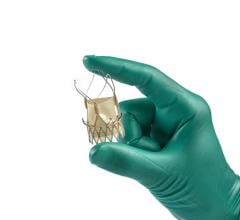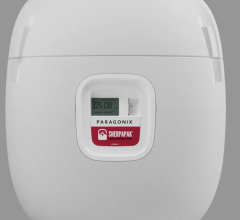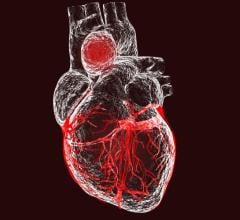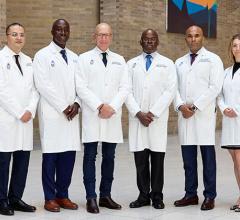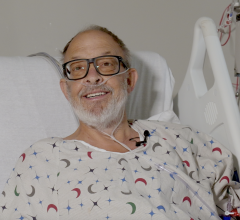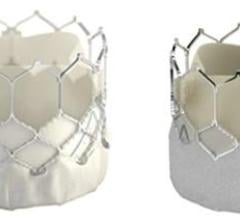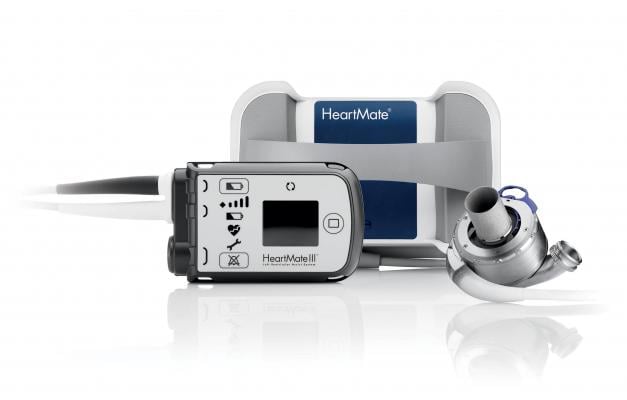
May 23, 2018 — Abbott has initiated a Class I recall of the HeartMate 3 Left Ventricular Assist System due to a malfunction in the device’s outflow graft assembly. The company said the malfunction may cause the outflow graft to twist and close up (occlusion) over time. Occlusion of the outflow graft can reduce or stop pump flow and set off a persistent low flow alarm in the system. A reduction in pump can lead to serious adverse events such as blood clots and death. The U.S. Food and Drug Administration (FDA) has identified this as a Class I recall, the most serious type of recall.
The HeartMate 3 Left Ventricular Assist System helps deliver blood from the heart to the rest of the body. It is used for short-term support of patients who are at risk of death from end-stage left ventricular heart failure, such as patients awaiting a heart transplant. The system includes a blood pump that is implanted in the space around the heart (pericardium) along with an outflow graft that connects the pump to the aorta.
The recall affects all lots and manufacturing dates for the catalog nos. 106524US (U.S. commercial), 106524 (U.S. Investigational Device Exemption number) and 10652INT (international) distributed between Sept. 2, 2014 and the present. The FDA said a total of 4,878 units nationwide are being recalled.
Patients experiencing a persistent low flow alarm should contact the physician managing their HeartMate 3 Left Ventricular Assist System immediately. Abbott is recommending not to remove the device because of this issue.
Following communications on April 5, 2018, and May 4, 2018, respectively, Abbott sent an Urgent Medical Device Recall notification to physicians on May 21, 2018, alerting them again to the device malfunction. The notification also provided physicians with the following instructions for managing patients getting the device or patients who already have the device implanted:
- Patients should be followed per recommendations from the American Society of Echocardiography (J Am Soc Echocardiogr 2015;28:853-909), which states that "An LVAD surveillance echo exam should be considered at approximately 2 weeks after device implantation or before index hospitalization discharge (whichever occurs first), followed by consideration of surveillance transthoracic echo (TTE) at 1, 3, 6 and 12 months post-implantation and every 6 to 12 months thereafter";
- TTE imaging is not a definitive tool to identify an outflow graft twist obstruction. However, it can be used as an indirect assessment of obstruction by imaging the size of the left ventricle, the mitral valve and aortic valve opening, and diastolic velocity (inflow or outflow);
- A decrease in flow over time may be an indicator of Outflow Graft twist obstruction. If such a trend in flow is observed, or if flow velocity anywhere in the Outflow Graft exceeds 2 meters/sec (J Am Soc Echocardiogr 2015;28:853-909), more frequent surveillance echo exams than listed above, or other investigative methods, may be necessary;
- If a persistent low flow alarm (i.e., a low flow alarm not resolved after all relevant patient medical conditions having been ruled out as the cause) occurs at any time following implant, a computed tomography (CT) angiogram should be urgently obtained, if there are no contraindications, to identify a possible outflow graft twist occlusion; and
- In the event that surgical repair of the outflow graft is needed due to a twist occlusion, the outflow graft bend relief should be reattached in its original state or repaired to prevent bending, abrasion or occlusion of the outflow graft at the graft's attachment point to the pump.
Healthcare professionals and consumers may report adverse reactions or quality problems they experience using these devices to MedWatch: The FDA Safety Information and Adverse Event Reporting Program either online, by regular mail or by fax to 1-800-FDA-0178.
Other Content on the HeartMate 3:
Abbott Receives FDA Approval for HeartMate 3 Left Ventricular Assist System
For more information: www.sjm.com, www.fda.gov


 April 23, 2024
April 23, 2024 

